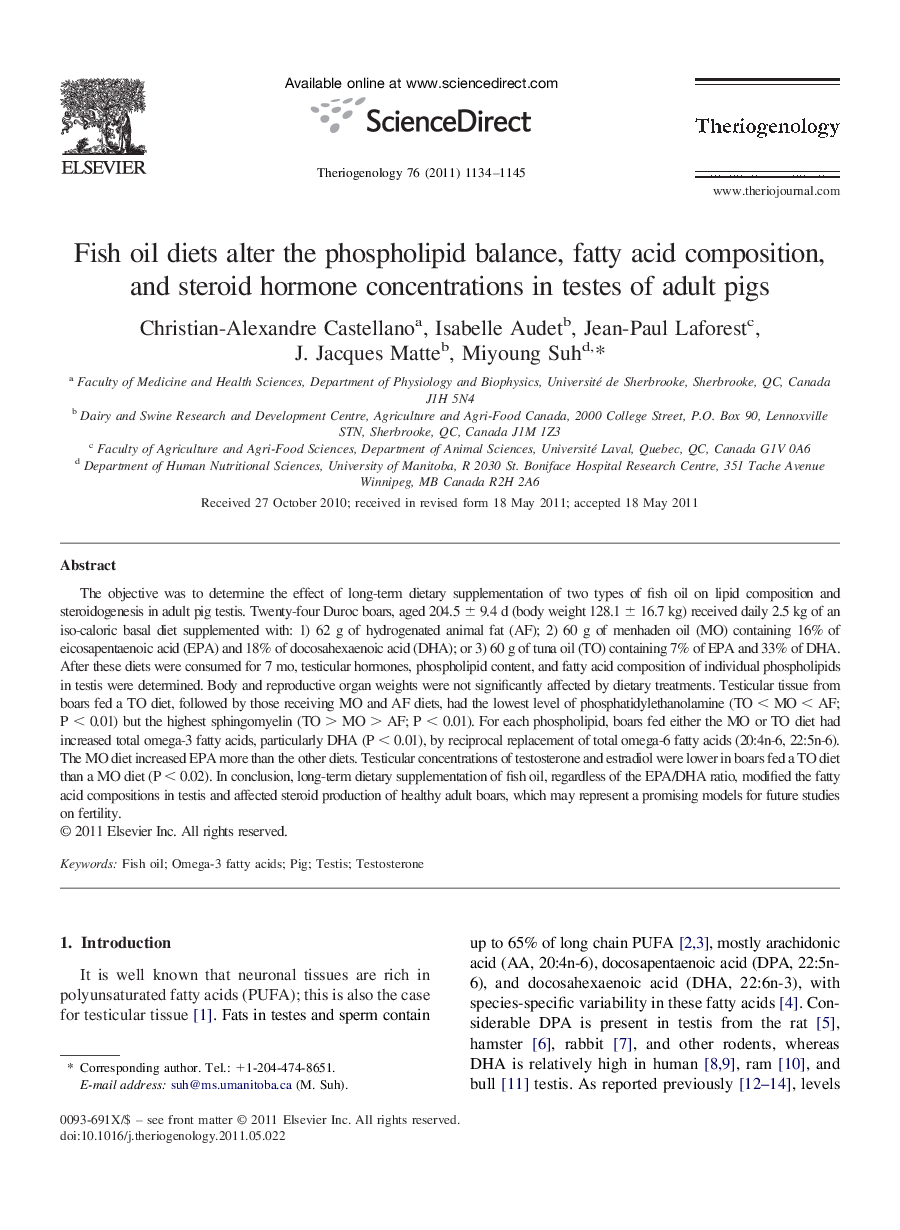| Article ID | Journal | Published Year | Pages | File Type |
|---|---|---|---|---|
| 10892609 | Theriogenology | 2011 | 12 Pages |
Abstract
The objective was to determine the effect of long-term dietary supplementation of two types of fish oil on lipid composition and steroidogenesis in adult pig testis. Twenty-four Duroc boars, aged 204.5 ± 9.4 d (body weight 128.1 ± 16.7 kg) received daily 2.5 kg of an iso-caloric basal diet supplemented with: 1) 62 g of hydrogenated animal fat (AF); 2) 60 g of menhaden oil (MO) containing 16% of eicosapentaenoic acid (EPA) and 18% of docosahexaenoic acid (DHA); or 3) 60 g of tuna oil (TO) containing 7% of EPA and 33% of DHA. After these diets were consumed for 7 mo, testicular hormones, phospholipid content, and fatty acid composition of individual phospholipids in testis were determined. Body and reproductive organ weights were not significantly affected by dietary treatments. Testicular tissue from boars fed a TO diet, followed by those receiving MO and AF diets, had the lowest level of phosphatidylethanolamine (TO < MO < AF; P < 0.01) but the highest sphingomyelin (TO > MO > AF; P < 0.01). For each phospholipid, boars fed either the MO or TO diet had increased total omega-3 fatty acids, particularly DHA (P < 0.01), by reciprocal replacement of total omega-6 fatty acids (20:4n-6, 22:5n-6). The MO diet increased EPA more than the other diets. Testicular concentrations of testosterone and estradiol were lower in boars fed a TO diet than a MO diet (P < 0.02). In conclusion, long-term dietary supplementation of fish oil, regardless of the EPA/DHA ratio, modified the fatty acid compositions in testis and affected steroid production of healthy adult boars, which may represent a promising models for future studies on fertility.
Related Topics
Life Sciences
Agricultural and Biological Sciences
Animal Science and Zoology
Authors
Christian-Alexandre Castellano, Isabelle Audet, Jean-Paul Laforest, J. Jacques Matte, Miyoung Suh,
